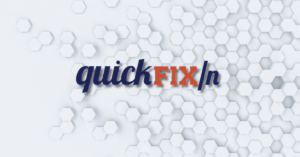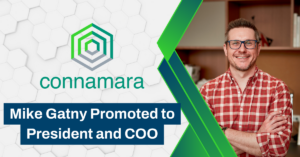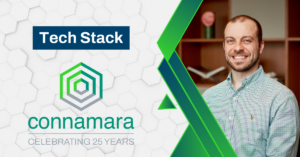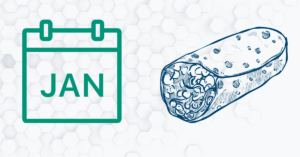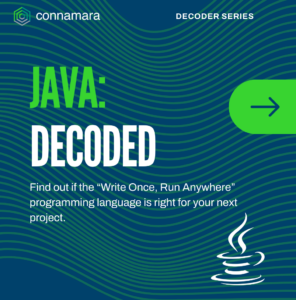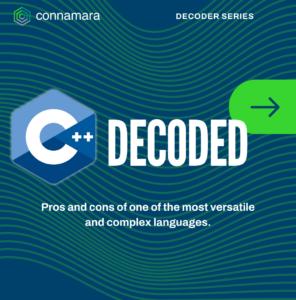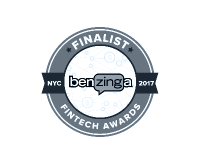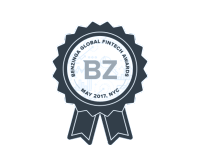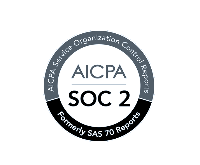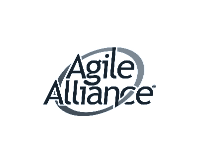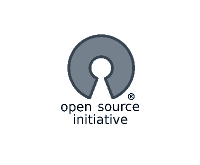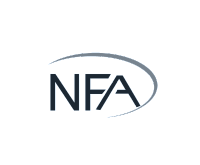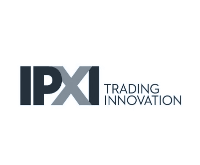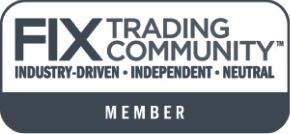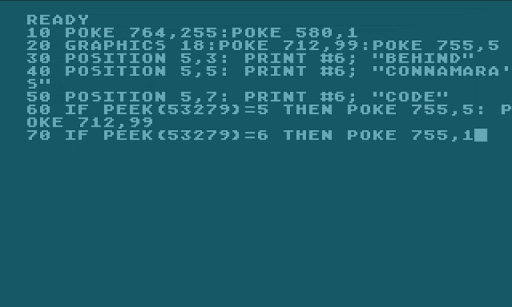
In Part One of our interview with Mike Gatny, VP of Engineering & Head of Sales Engineering at Connamara, Mike detailed what he does for clients, his career background, and what makes Connamara special. In Part Two, below, he shares his advice to those looking to get into programming, his favorite engineering joke, and more.
***************************************************************************
How did you first become interested in computer science?
My dad was an avid video gamer¹, starting in the ‘80s with the Atari 800 and Atari 130XE. He had this massive library of games, and I was absolutely fascinated by them. I loved playing them, but I also just had to know how they worked. So when I was about eight years old, my dad taught me how to program in BASIC.
Once I was up and running in BASIC, my dad taught me how to use Atari DOS and the disk drive so I could save my work. Then he handed me the manuals that came with the computer, and off I went to learn 6502 assembly programming and beyond. This was the real magic of learning on the 8-bit computers of that era: the documentation was excellent, and it came with the machine. Today we can search the Internet for answers, but back then your only hope was to have a book or to know an expert.
So that’s how I got started, and it remained mostly a solo mission until about junior high or high school, when I started encountering other people who shared my interest in computer programming. The modern Internet was still years away, so sitting together and programming, and sharing our programs on floppy disks, was how we got together and socialized.
¹ When my brother and I got The Legend of Zelda: Ocarina of Time for Christmas, each of us would try to get up earlier than the other so that we could take the first turn playing it. We gave up after the first few days of winter break. My dad, accustomed to waking up at 4:00am for work, beat us to it every time, and finished the game before my brother and I were even close.
What is one thing the general public might get wrong or not know about software engineers?
This is completely anecdotal, but there is a correlation I have noticed: software engineers that I know tend to have an appreciation for cooking and music. I think the reason is that all of these pursuits, done well, require an understanding of both the art and the science involved. You can probably cook a pretty nice steak and plate it beautifully without knowing what the Maillard reaction is. But how much better and more consistent would all your cooking be if you did know? Similarly, knowing what the Phrygian mode is, does not guarantee that you will compose an interesting piece of music. But if you know you want your piece to sound dark and brooding, it will give you a head start.
Programming is like this too. It might surprise non-programmers to know that we often use the word “elegant” to describe an algorithm or data structure or other piece of code. When you apply the science behind what you are doing, but also fulfill the artistic expression of it, elegance is the result.
What do you enjoy about your specific role within software engineering?
As much as I still love to write the next line of code, I really enjoy mentoring others, overseeing projects, and helping to land new business. I view all of these things as the answer to one question: what is the best way for me to contribute to the success of the next generation of Connamarians? I didn’t get here on my own. Throughout my career I’ve had incredible mentors and leaders who helped me along, and it is rewarding to pass that on.
On that note, what do you wish to impart to those looking to get into the programming world?
The best way to learn any skill, programming or otherwise, is to use it to accomplish a meaningful task.
When I was a kid sitting in front of my Atari 800, my goal was not to learn a programming language. It was to learn how my favorite video games worked so that I could write my own.
So first decide what you want to build. And then trust that along the way you will learn which tools you need and how to use them. If you start by asking the Internet which language you should learn first, or if one framework is better than another, you’ll just spin your wheels. There are too many choices, and which language or framework you use matters way less than your determination to accomplish a task that matters to you. So flip a coin if you have to, and get busy building.
Lastly, but most importantly: what is your favorite engineering joke?
“There are only 10 types of people in the world: those who understand binary, and those who don’t.”
And for something a bit deeper than a one-liner, I like xkcd.
____________________________________________________________
We hope you enjoyed our interview with Mike, and we look forward to introducing you to more of our engineering team as we continue this series.
